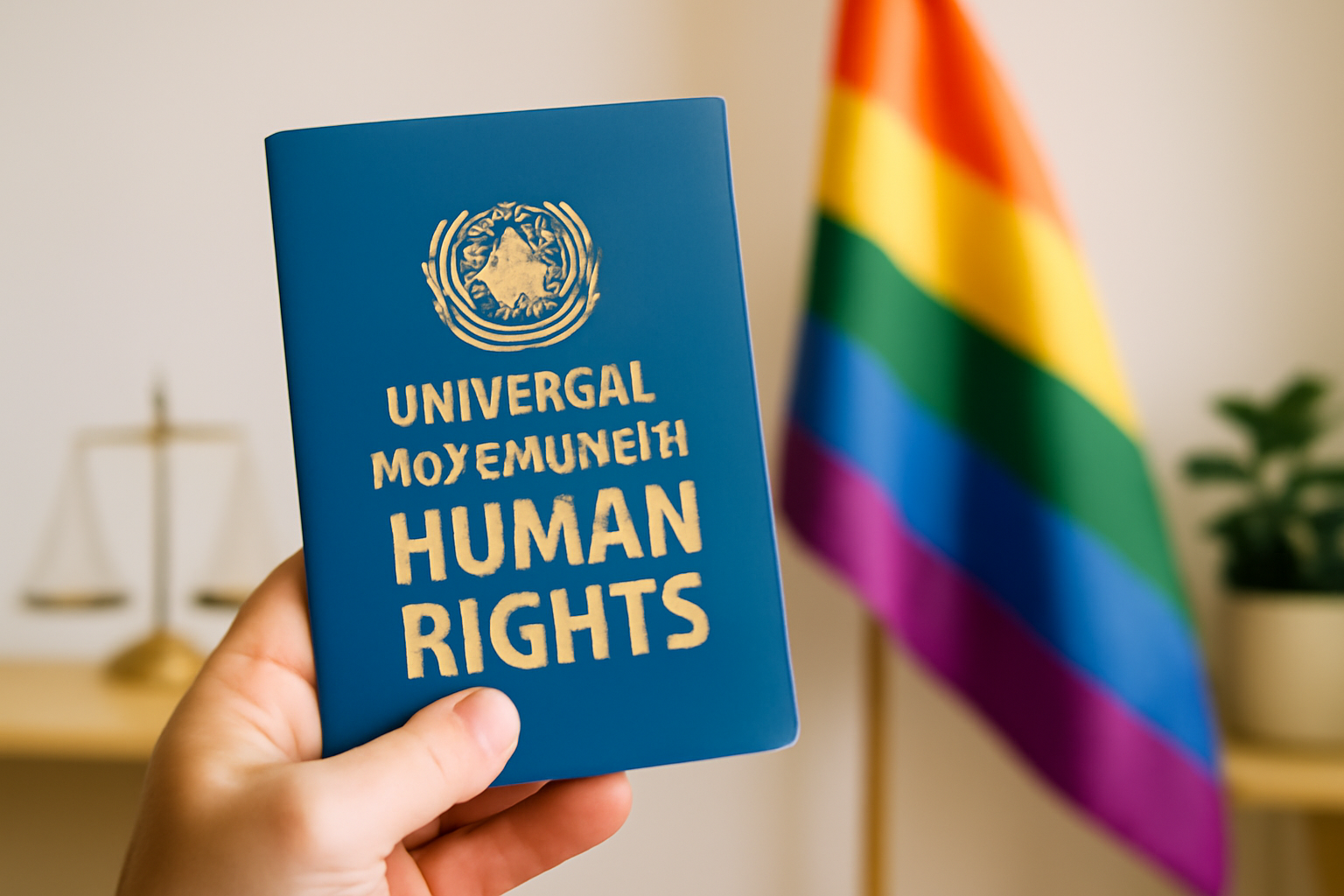
The Universal Declaration of Human Rights
The Universal Declaration of Human Rights (UDHR), adopted by the United Nations, stands as a testament to the world's commitment to ensuring the dignity and equality of all individuals. It seeks to guarantee human rights without discrimination based on gender, social status, or other characteristics. Born out of the atrocities of World War II, the UDHR was crafted to prevent the recurrence of such horrors by promoting peace and equality. It affirms the right of every individual to live free from hate, discrimination, and violence, under the protection of law.
U.S. Policy Shifts and Global Implications
The recent announcements from the United States about potentially withdrawing from the United Nations have raised significant concerns about the future of global human rights protections. As a major contributor to the UN's budget, the U.S.'s involvement is crucial for the enforcement of international human rights agreements. A withdrawal signals a shift that may encourage human rights violations and weaken grassroots movements advocating for marginalized communities. The long-term impact on these communities remains uncertain, but it poses a serious threat to their safety and rights.
Recent changes in U.S. leadership have seen a withdrawal of protections for various groups, including immigrants, migrants, LGBTQ+ individuals, and women. This shift is marked by a series of executive orders that claim to "realign American values" but often result in increased discrimination and division. Such moves have potential global repercussions, influencing policies and attitudes towards vulnerable groups worldwide.
Challenges to Gender Identity and Expression
Among the most concerning developments is the policy targeting gender diversity. An executive order issued on January 20, 2025, titled "Defending Women from Gender Ideology and Extremism," has been criticized as an attack on transgender individuals. It perpetuates the false notion that gender identity is deceptive, fostering an environment where transphobia may flourish unchecked. Such narratives reinforce rigid gender norms and encourage hostility towards those whose identities do not conform to traditional expectations.
The effects of this policy are being felt beyond U.S. borders. In Nigeria, for instance, conservative leaders have praised the U.S. stance as it aligns with existing laws that criminalize same-sex relationships and restrict gender expression. Reports indicate an increase in discrimination and violence against LGBTQ+ individuals, a trend exacerbated by the legitimization of exclusionary rhetoric. This global ripple effect endangers the safety and dignity of transgender and gender-diverse people worldwide.
Immigration and Xenophobic Narratives
The administration's executive orders also target immigrants and refugees, framing them as threats to national security. These policies perpetuate harmful stereotypes and reinforce xenophobic sentiments, portraying migrants as burdens rather than contributors to society. Such rhetoric undermines the principles of the UDHR and other international agreements meant to protect the rights and dignity of all individuals, regardless of their origin.
Dehumanizing narratives about migrants and refugees contribute to an environment where violence and discrimination become more common. The portrayal of these individuals as "others" fosters division and hinders integration, challenging the fundamental human rights protections that many nations strive to uphold.
Women's Rights Under Threat
Women's rights have also come under attack, with policies that undermine decades of progress. The reinstatement of the Global Gag Rule, which cuts funding for critical health services, jeopardizes women’s access to reproductive health care worldwide. This policy disproportionately affects those already marginalized, increasing their vulnerability to human rights abuses such as forced pregnancies and denial of essential health services.
Reports highlight the persistence of gender-based violence as a significant issue, particularly in regions like Africa. The rhetoric and policies of current leadership exacerbate these challenges, reinforcing harmful stereotypes and limiting women's autonomy. The ongoing struggle for gender equality faces new obstacles as discriminatory policies gain ground, threatening to undo years of advocacy and progress.
In this complex global landscape, the actions of powerful nations have far-reaching effects. As policies shift, the protection of human rights for vulnerable groups hangs in the balance. It is imperative for communities, activists, and leaders to continue advocating for the inclusion, dignity, and safety of all individuals, ensuring that the values enshrined in the UDHR are upheld for future generations.
Related Posts
Dylan Mulvaney's Aspirations for a Trans-Inclusive "Legally Blonde" Musical
Dylan Mulvaney's vision: A trans-inclusive "Legally Blonde" musical Dylan Mulvaney, known and loved on stage, has a dream: she wants a fresh take on Elle Woods in a trans-inclusive version of Legally Blonde: The Musical. Her vision isn't just a dream—it might just be on its path to reality. Her passion: Theater and inclusivity Before she steps onto London' s West End stage in We Aren't K [...]
Stonewall Riots: Celebrating the Role of Trans Women in the LGBTQ+ Movement
Recently, there have been some unsettling changes stirring up anger in parts of our community. The government has quietly removed vital mentions about trans people from important historical landmarks. The Stonewall National Monument, which honors those pivotal riots, has seen its website revised in a troubling manner, leaving out transgender individuals who played key roles in that chapter. why s [...]
Controversy Surrounds Meta's Policy Changes After LGBTQ+ Group's Post Removal
Meta's policy shift sparks outrage in LGBTQ+ circles Lately, Meta has found itself at odds with Equality Amplified, a powerhouse in LGBTQ+ advocacy, after one particular Facebook post was removed. The post, which boldly criticized changes in Meta's guidelines on hateful conduct, was taken down with claims citing "cybersecurity concerns." This move has set off alarm bells about Meta's recent polic [...]